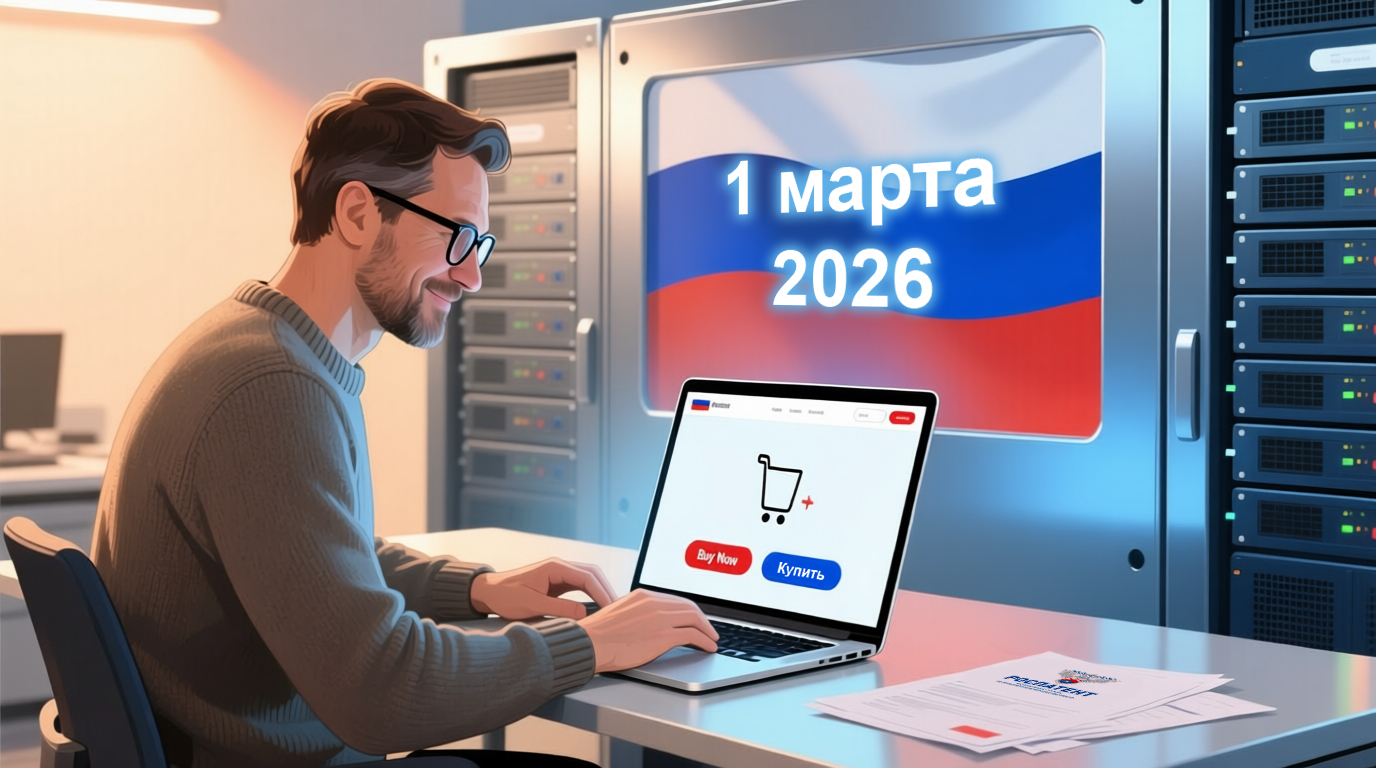Michael Holopov, CEO of hosting provider ATLEX, on upcoming changes in legislation and practical steps for companies.

Dear colleagues, partners, representatives of the Russian business community!
On March 1, 2026, amendments to the law “On the State Language of the Russian Federation,” adopted in the summer of 2025, will come into force in Russia. These changes directly affect everyone who does business in the digital space, and especially us, IT market players, whose activities are inextricably linked to the provision of services on the Internet.
Let's skip the legal jargon and use clear examples to understand what these changes mean and how to prepare for them so you don't face fines and other penalties.
The essence of the changes: Russian language — at the forefront
The legislator has clearly stated that if your activities are aimed at consumers in Russia, Russian must be the dominant language at all points of contact:
- On websites and in mobile applications.
- In advertising materials (banners, contextual advertising).
- In product descriptions and on packaging.
- In trademarks and commercial designations.
The key principle is "no less expressive." This means that if you use an English (or any other language) name, slogan, or description, its Russian-language equivalent must be in the same font, size, and color, and occupy an equivalent visual position. Simply put, you cannot use small gray font for the translation where the original is written in large, bright font.
Lifelines: when foreign words can be retained
The law does not require that you speak and write only in Russian. There are important exceptions:
- Officially registered trademarks. If you or your partner has a trademark entered in the Rospatent register, it can be used in its original foreign-language form. This is the main “shield” for international brands.
- Names of foreign organizations. In official documents or within the framework of established international practice (for example, the names of partner companies in contracts), they can be left untranslated.
- Specialized terminology. This exception is especially important for the IT sector. Terms such as "cloud computing", "Software as a Service (SaaS)", "bare metal server", "API", "backup", and hundreds of others have become firmly established in professional vocabulary. Their use is dictated by the very nature of our activities and, according to the law, is permissible without duplication in Russian.
Focus on IT and hosting: areas of particular concern
How will these regulations affect us, IT service providers, and our customers?
1. For companies working with foreign data centers, brands, and partners.
This is one of the most difficult issues. Many Russian companies are resellers or partners of foreign vendors (e.g., cloud providers, hardware or software manufacturers). Often, these foreign companies do not have a trademark registered in Russia.
What should you do?
- Audit all mentions on your website, in advertising materials, and documentation. Where do you use the logos and names of foreign partners?
- Request confirmation from partners that they have a valid trademark in the Russian Federation. If they do not, prepare an equivalent Russian-language representation of their brand. For example: "We are partners of the company
Original name(Russian-language description — who, where, etc./transliteration)". - Review advertising campaigns. All creative content aimed at a Russian audience must be brought into line with the principle of "expressiveness" in the Russian language.
2. For website and online store owners.
- Website interface (UI): The buttons "Buy Now", "Add to Cart", and "Subscribe" should be duplicated or replaced with "Купить" (Buy), "В корзину" (Add to Cart), and "Подписаться" (Subscribe). The names of the sections "Home", "About Us", and "Services" should be changed to "Главная", "О нас", and "Услуги".
- Descriptions of goods and services: Sales-oriented text must be in Russian. Technical specifications may contain English terms.
- Domain names: Requirements for .RU and .РФ domains have not changed. The use of international domains (.com, .net, etc.) is still permitted.
Implications for the hosting and data center market
Our industry will experience changes in several areas:
- Increased demand for "Russified" IT solutions. Customers will seek providers that offer control panels, technical support, and documentation in Russian, which is a natural advantage for us, Russian players.
- Strengthening of the position of local data centers. Companies whose business is tied to Russia will more carefully assess the risks of using foreign infrastructure, including from the point of view of compliance with legislation, which will play into the hands of domestic data centers.
- A new direction for growth. For us, as a full-service hosting provider, this is another sign that we should keep developing services that are not only technologically advanced but also fully compliant with Russian law, whether it's virtual hosting, server rental, or equipment placement in our data center.
Conclusions and recommendations
Instead of a conclusion, I propose a simple action plan for today:
- Start the audit right now. Don't wait until 2026. Analyze your website, advertising materials, and commercial offers.
- Compile a register of partner brands and check their legal status in Russia.
- Develop internal standards for the use of foreign words and brands, based on exceptions to the law.
- Consider this law not as a threat, but as an opportunity. An opportunity to make your product or service more understandable and accessible to Russian consumers, which ultimately always works to increase loyalty and conversion.
The new law is not about prohibitions, but about establishing clear and understandable rules of the game in the digital environment. For prepared companies, it will be just a stage of planned adaptation, but for those who ignore these changes, it will be a source of real risks. Stay one step ahead.

Comments